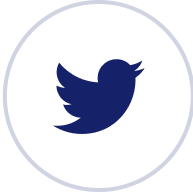Your cart is currently empty!
8 Month Old Milestones
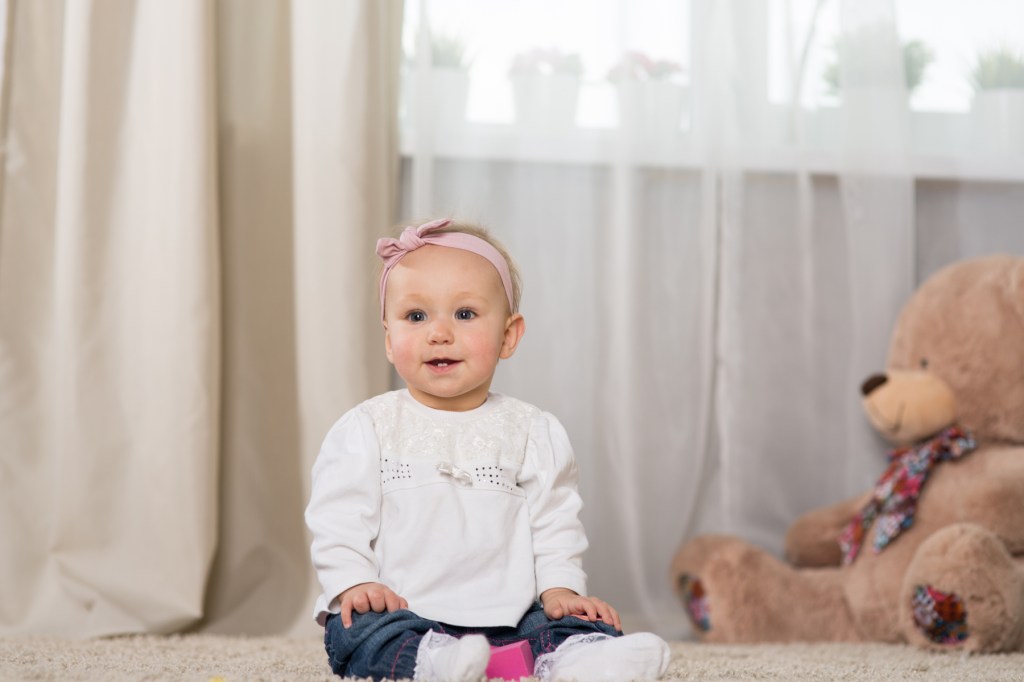
You’ve got a little human with a full blown personality on your hands now…and they are on the move.
Here’s What You Need To Know:
- Their pincer grasp is hard at work, your baby can now pick up food between their thumb and index finger.
- Your little one is transitioning to a diet of more solid food and less breastmilk or formula.
- Time to baby proof! Your baby is starting to explore on their own and everything will go into their mouth.
- Taste and touch are key ways your baby is learning.
- Your baby can bounce while they’re standing.
- They are trying to crawl (scoot, boot, move across the floor)
- Your little one loves looking in the mirror
- Your 8-month-old can recognize familiar faces.
Avoiding A Picky Eater
At 8 months, your baby is trying all kinds of new foods for the first time. As they test these new foods, you’ll see some funny faces. That’s because all babies fall on a spectrum of cautious to adventurous. (this will change as your baby becomes more familiar with social interactions, play, and new things.) When your babe rejects a food, don’t react. Remember, you get to decide when and what they eat and your baby will decide how much. So keep trying! It can take up to 15 tries for your babe to love a new food. Continue to add new foods and a variety of textures to your baby’s diet to avoid a picky eater in the future.

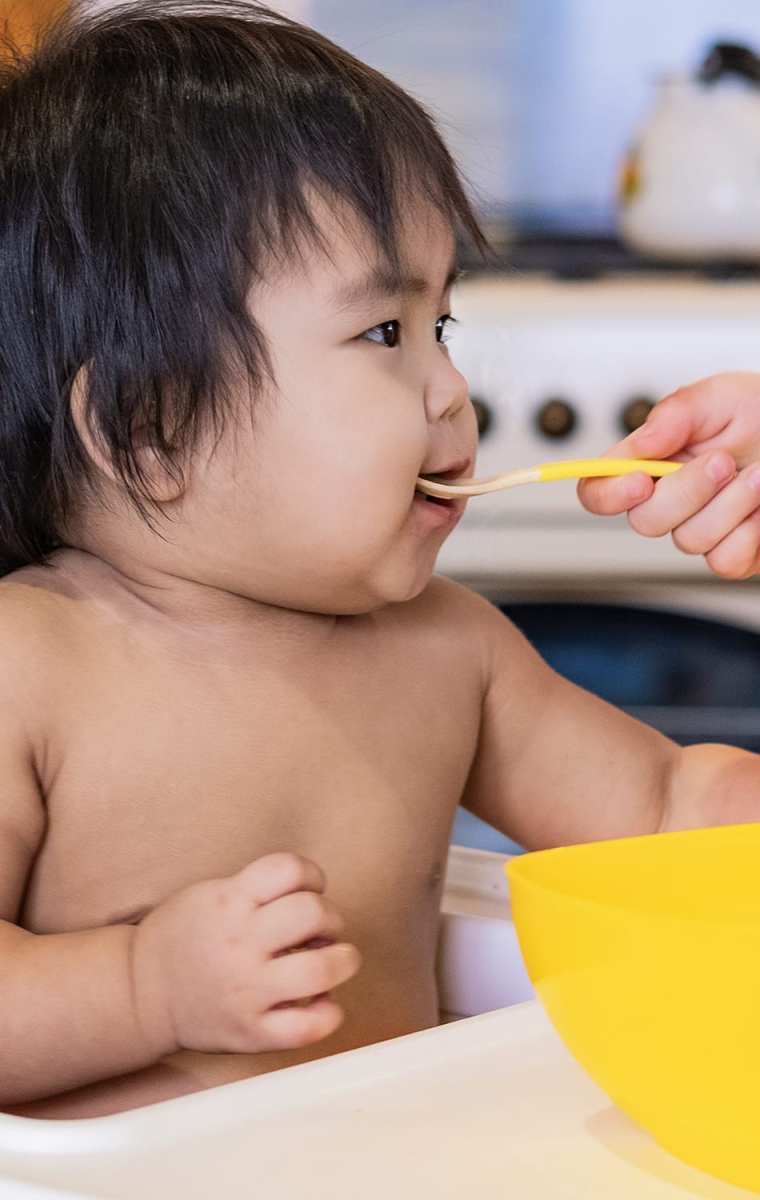
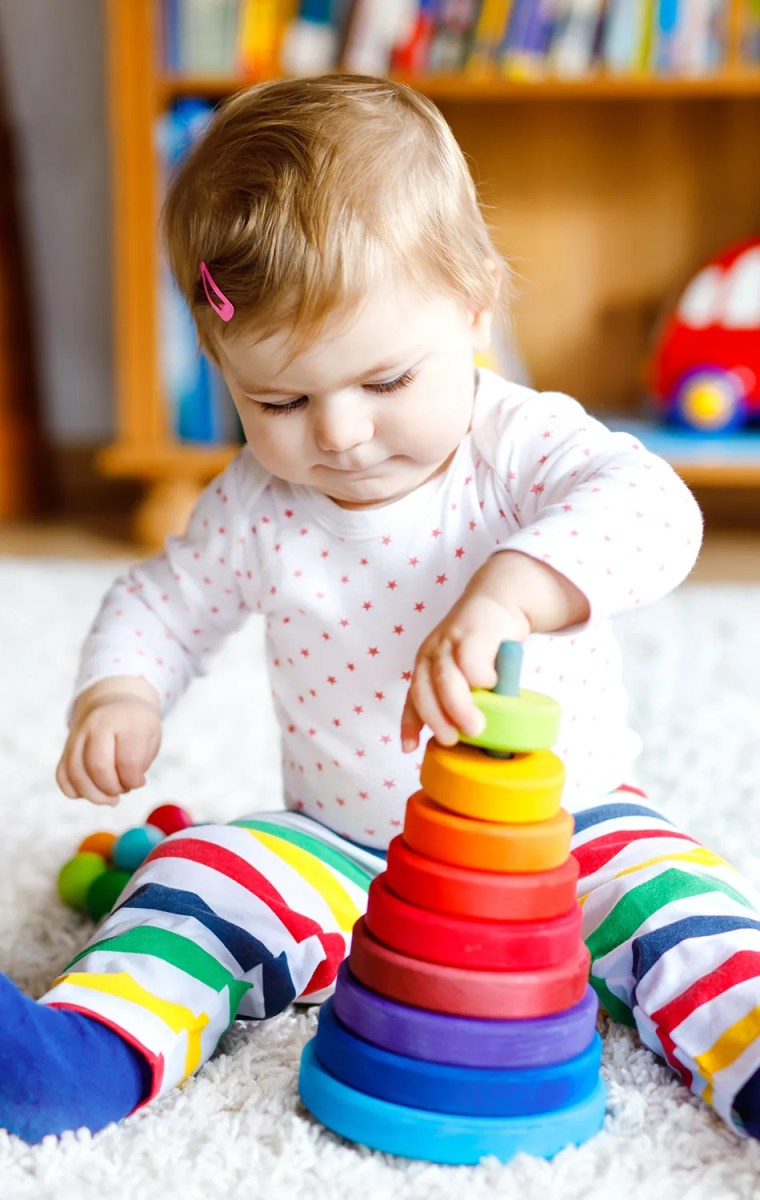
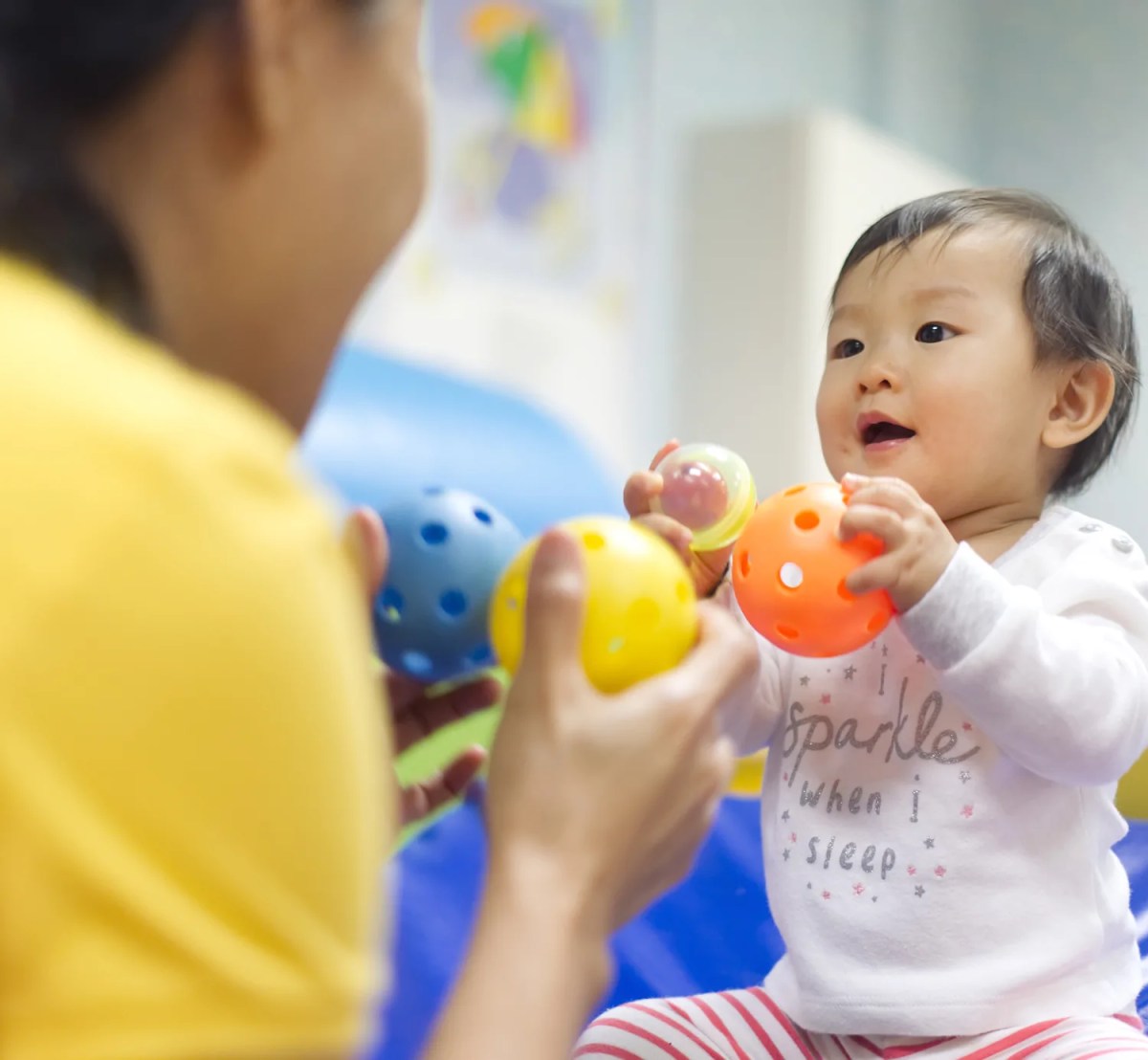
1. Your Baby’s Brain
Hola. Bonjour. And 你好 to your little boss. Most babies are starting to crawl and they are pairing motor skills with senses. They see a toy. Crawl to it. And pick it up. Your baby’s pincer grasp is also developing. In the beginning of pincer development, you will see your baby use more of a “raking” motion. This will look like they’re swinging at objects to bring them closer.
At this age, your baby has a lot to say and can sometimes feel frustrated that they can’t communicate yet. Model sign language and pair the verbal command with the sign. A few of our favorites are “all done,” “more,” “eat,” and “sleep”.
2. Your Baby’s Eyes:
At 8 months, your baby is watching everything you do– especially when it comes to food. Studies show that baby’s facial expressions will change during feeding in response to the face they’re seeing. In fact, babes will show expressions of distaste (i.e. a grimace), even if they are increasing their intake of that food through repeated exposure. (Remember: it can take 12-15 tries to get your babe to accept a new food. If they resist, persist!) Focus on your baby’s willingness to eat the food and not just that goofy grimace.
3. Your Baby’s Sleep
At 8 months, your baby is sleeping 12-15 hours a day, including 2-3 naps. Sleep and language development are closely linked. Your baby is beginning to put vowels and consonants together in ways that actually make sense, like “dada.” The almighty nap plays a key role in building these connections.
In one study, scientists associated made-up words with a category of objects to mimic the way we associate a word, such as “cat”, with several types of cats (despite variations). Interestingly, kids who didn’t sleep or only slept for 30 minutes after the lesson failed to learn the meaning of new words. However, kids who slept 50+ minutes showed an ability to make the connection. Researchers believe this shows that the second stage of sleep is important for babies as they develop their linguistic capabilities.
4. Your Baby’s Heart
Proper nutrition plays an essential role in the development of your child’s cardiovascular system. Once your baby is born, their heart simultaneously grows along with other body organs. Like adults, babies require adequate amounts of omega-3 fatty acids, calcium, and phosphorus, which help form the tissues of your baby’s heart in the first trimester. These nutrients continue to play a vital role in your baby’s heart health.
Bilingual Homes
There is growing evidence that children benefit from exposure to multiple languages even at 8 months. At birth, a baby can already differentiate between the language of their mother and different languages. In fact, language differentiation is one thing your baby can definitely do better than you–a baby can discern all 800 sounds that make up the languages of the world.
However, babies in monolingual homes begin to specialize in that language between 6 to 12 months. In part, this happens because their minds are learning to become more efficient. Around 9 months, the brain will begin to prune away language synapses that are not actively used. Thus, immersing babies in multiple languages while they’re young may make it easier for them to be multilingual in the future.
Your Little Poker Champ
As adults, probability is part of everyday life – we make tiny calculations every day. At 8 months, babies are honing in on this logic. In one study, researchers at the University of British Columbia showed 8-month-old infants a box containing red and white balls. They pulled out five balls – four of one color and one of the other color. Then they revealed the contents of the box, which were either mostly red balls or mostly white balls. Interestingly, when the outcome was unexpected, such as 4 white balls pulled from a mainly red box, infants stared at the box for about 2 seconds longer, indicating that they were surprised that the box didn’t match their expectations.
Replace Screens with Sounds
As tempting as it may be to give a fussy infant a YouTube video or a fancy, high-tech toy, research suggests that lo-tech is still best for development and communication skills. In one study in 2016, infants that played with electronic toys were exposed to fewer adult words, fewer parental interactions and were less vocal during play versus time spent with more traditional toys and books. So play your favorite podcast in front of your little one instead of a movie.
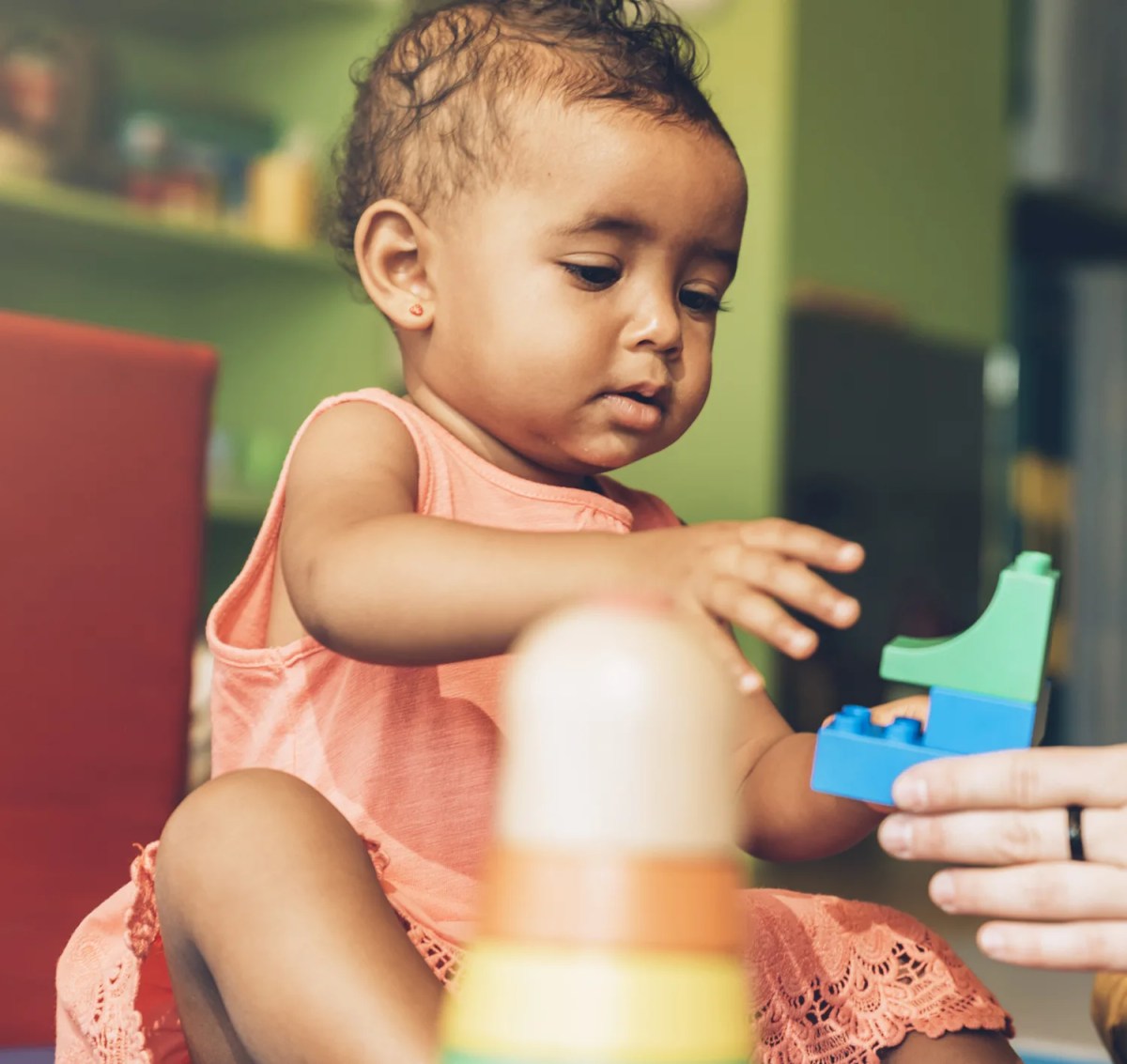
Summary
It is time to baby proof your home because your eight-month-old is a little explorer. They are crawling everywhere and are discovering new things by (of course) sticking them in their mouth.
Every baby develops at a different pace, so don’t be concerned if your little one can’t crawl yet. Talk to your pediatrician if your baby can’t bring items to their mouth yet or is not responding to/making sounds.


